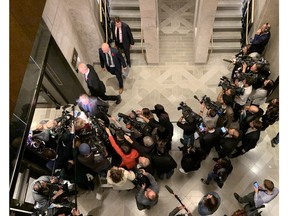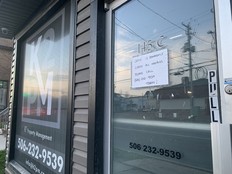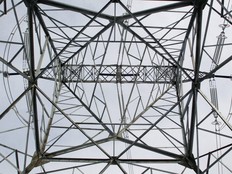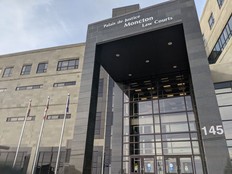N.B. MP reveals role in uncovering espionage at Canada’s top lab
Beginning last summer, MP John Williamson would enter for hours a secure building in downtown Ottawa to pour over classified documents

Article content
OTTAWA • Beginning last summer, New Brunswick Southwest MP John Williamson would enter for hours a secure building in downtown Ottawa to pour over hundreds and hundreds of classified documents.
Named as one of just four MPs part of a special committee investigating the firing of two scientists from Canada’s top infectious disease laboratory, Williamson says a trove of top secret reports from Canada’s intelligence agency quickly pointed to espionage.
Now, five years after Xiangguo Qiu and her husband, Keding Cheng, were escorted from the National Microbiology Laboratory in Winnipeg, what Canada knew is becoming clearer.
On Tuesday, Parliament’s Canada-China Relations committee agreed to undertake a study about the revelations contained in the more than 600 pages that were released last month detailing how two scientists studying deadly viruses were able to work closely and covertly with China.
They’re documents that Williamson played a part in unlocking.
“It’s a rare look, I think, into the way CSIS operates and now some of the unclassified research in reports they have done on these two scientists,” Williamson said in an interview with Brunswick News. “And it will leave no doubt about the threat from Beijing and the People’s Liberation Army and how any opportunity to steal our secrets can be exploited.
“If people want to see what’s going on at the highest levels at our most secretive laboratory in the country, these documents are now out there.”
Williamson, a long-standing critic of the communist regime, was previously selected to sit on a special Canada-China Relations Committee mandated to reevaluate all aspects of Canada’s relationship with China.
From there, he took on the role of receiving unfettered access to all national security documents related to the Winnipeg lab scandal.
Behind closed doors with national intelligence in hand, Williamson would hone his argument to be made to three former justices who were then to decide what the public could know.
The rest would stay under lock and key.
“At the end of the day, a tremendous amount of information has been released to Parliament and the public that not only serves to reveal some serious shortcomings at the Winnipeg lab, but also signals yet again how serious the threat from Beijing really is,” Williamson said.
“Ultimately, the biggest takeaway is the ongoing national security threat to Canada and our allies from Mainland China.”
The now-public documents show that the Canadian Security Intelligence Service determined that one of the two scientists worked covertly with Chinese government labs and collaborated with “institutions whose goals have potentially lethal military applications.”
“The Service assesses that Ms. Qiu developed deep, cooperative relationships with a variety of People’s Republic of China institutions and has intentionally transferred scientific knowledge and materials to China in order to benefit the PRC government,” reads a letter from January 2021 recommending her security clearance be revoked.
CSIS discovered Qiu had applied for and likely received a position under China’s Thousand Talents Program, a government sponsored program to recruit Chinese experts, which also allows them to keep jobs in Western countries.
Qiu’s position came through the Wuhan Institute of Virology.
Among a series of other findings, Qiu was found to have shipped sensitive materials outside of the national microbiology lab without approval, including antibodies to the China National Institute for Food and Drug Control.
What could be released publicly was determined line by line last fall and into the new year when the judges, armed with the requests of Williamson and his three colleagues, met with Health Canada, the privy council office, but also CSIS officials in a back and forth debating national security and public importance.
“I think this produced results that have told an incredible story about what happened at the Winnipeg lab,” Williamson said. “There are no documents related to the two scientists that are unknown now to the public.
“Anything that was redacted are in those documents that were tabled, they’re just blanked out.”
Williamson said, at first, the documents present a story of just a poorly run national lab, where protocols are being broken, “and you can explain away doubts or suspicions.”
“But then when you get into the CSIS documents, you see that in fact Beijing was attempting to penetrate not only this facility, but others in the world,” he said.
“The climax is when it’s revealed that in fact the two scientists were working with the People’s Republic of China to infiltrate the lab, steal secrets, and even use Canadian knowledge to weaponize viruses against not only Canada and our allies.”
It’s now over to Parliament, with no shortage of committee work that could come out of it.
The Health committee could now bring in Winnipeg lab officials to question them over security protocols, and seek details on what has changed since.
There’s also new questions around Beijing’s interference, its spying from a national security perspective, as well as important questions for the federal government on oversight.
“While the work I was involved in, it’s done, I still believe there’s an important job for Parliament and parliamentary committee to do,” Williamson said.
On Tuesday, the Canada-China Relations committee resolved that it will hear from federal Health Minister Mark Holland, Minister of Public Safety Dominic LeBlanc, as well as CSIS director David Vigneault, the prime minister’s national security advisor Nathalie Drouin and top officials from the Public Health Agency of Canada.
They agreed to hold two meetings every week on the study once Parliament resumes next month, and to make it a priority over any other business.
“It’s clear to me that, first and foremost, security at the Winnipeg lab has to be elevated and protocols have to be followed, something that wasn’t happening in the past,” Williamson said, adding that foreign agents and military officials from other countries must be shut out of the lab.
“At the same time, Canada has to take the threat from Beijing much more seriously, and that’s going to mean walling off our most sensitive secrets from Chinese scientists.”












Postmedia is committed to maintaining a lively but civil forum for discussion. Please keep comments relevant and respectful. Comments may take up to an hour to appear on the site. You will receive an email if there is a reply to your comment, an update to a thread you follow or if a user you follow comments. Visit our Community Guidelines for more information.